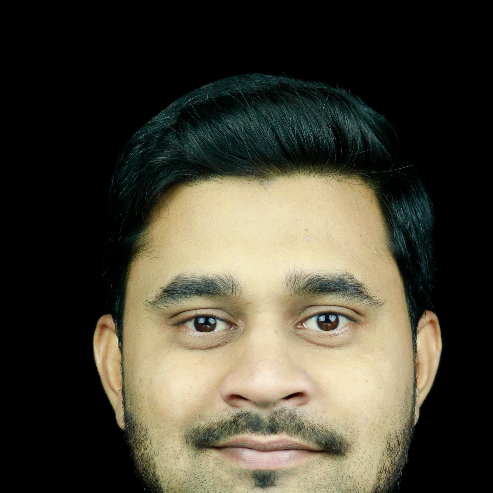Welcome User
Relevance
Best Cardiologists in noida (61 doctors)
Dr. P Bhavanadhar
Cardiologist
5 Years • MD,DM
1134 KM • Karimnagar
Apollo Reach Hospital, Railway Station Road, Karimnagar
Dr Mamta Guha
Cardiologist
15 Years • MBBS/MD
10 KM • South Delhi
Apollo Hospitals Indraprastha, South Delhi
Dr Anil
Cardiologist
10 Years • Harvard
1240 KM • Hyderabad
Apollo Hospitals Jubilee Hills, Hyderabad
Madhu
Cardiologist
8 Years • MBBS MD
1745 KM • Chennai
Apollo Speciality Hospital, Vanagaram, Chennai 95, Chennai
Sunilchandrakunapulivenkata
Cardiologist
10 Years • MBBS, MD(Internal Medicine), D.M(Cardiology)
1240 KM • Hyderabad
Appollo Hospital - Jubilee Hills, Hyderabad, Hyderabad

Rose
Dietitian
7 Years • MBBS, MD(Internal Medicine), D.M(Cardiology)
1240 KM • Hyderabad
ATHS, Hyderabad

Autoperf
Cardiologist
5 Years • MBBS
1229 KM • Hyderabad
Umcc Hyderabaddf, Hyderabad
Bhavesh Kasana
Cardiologist
20 Years • MD
1745 KM • Gurugram
Apollo White Dental - West Patel Nagar, Delhi, Gurugram
Dr. Sudhir Naik
Cardiologist
50 Years • MBBS; MD (Int. Med.), DM (Cardio)
1240 KM • Hyderabad
Apollo Hospitals Jubilee Hills, Hyderabad
Madhu
Cardiologist
8 Years • MBBS MD
1745 KM • Chennai
Apollo Speciality Hospital, Vanagaram, Chennai 95, Chennai
Sunilchandrakunapulivenkata
Cardiologist
10 Years • MBBS, MD(Internal Medicine), D.M(Cardiology)
1240 KM • Hyderabad
Appollo Hospital - Jubilee Hills, Hyderabad, Hyderabad
Satya Varma Test
Cardiologist
3 Years • MBBS
1312 KM • Secunderabad
aaaamims, Secunderabad
Dr. Sourav Gupta
Cardiologist
15 Years • MBBS
1243 KM • Hyderabad
Apollo Hospitals Hyderguda, Hyderabad

Sumit Yadav
Cardiologist
12 Years • DM (gastro)
814 KM • Vadodara
32 Ivory Dental Care, Vadodara
Venkatakrishna Ravirala
Cardiologist
27 Years • MBA
1233 KM • Hyderabad
ATHS, Hyderabad
FAQs
What standard diagnostic procedures does a cardiologist in Noida conduct?
Some of the best cardiologists in Noida perform the following therapeutic and diagnostic procedures:
Pulse palpitation and auscultation test: This test checks the pulse during palpitations. A stethoscope is used to listen for chest sounds.
- Electrocardiogram: An ECG or electrocardiogram measures the heart's electrical activity over time. Usually, it is monitored throughout the day to check for abnormalities within the heart's function. These are often hard to identify during a small-time frame.
- Echocardiogram: Similar to an ultrasound procedure, this technique uses high-frequency sound waves to create a detailed heart image.
- MRI: A cardiovascular MRI creates a detailed image of the heart to help determine whether a person is suffering from pericardium-related issues or cardiomyopathies.
- Stress tests: A stress test or exercise test is another most used diagnostic procedure. Patients are asked to walk on the treadmill or ride a stationary bike, and their heart is monitored. This test helps reveal how a person's heart responds to physical activity and whether there is any noticeable symptom of a cardiac ailment.
- Cardiac CT scan: A heart CT scan takes X-ray images of the chest and heart to get a detailed view of the same. It will help catch any hidden symptoms or signs of cardiac disease.
What are the different departments in cardiology?
There are many subspecialties under the cardiology department, which include:
- General cardiology
- Heart failure cardiology
- Electrophysiologist
- Congenital cardiology
- Interventional cardiology
- Cardiovascular surgery
Who is a pediatric cardiologist?
Pediatric cardiologists treat cardiovascular diseases in children. They can help treat conditions linked to structural differences in heart problems like arrhythmias or congenital heart defects.
Who is an electrophysiologist?
An electrophysiologist is an expert who diagnoses and treats diseases related to the heart's electrical system. They usually conduct diagnostic tests to identify the specific part of the heart causing trouble in the heart's regular rhythm.
Is a cardiologist qualified to do cardiovascular surgeries?
A general cardiologist is more involved in long-term patient care, which does not include surgeries and procedures. In the case of non-surgical procedures like endoscopy or placement of coronary stents, an interventional cardiologist might be referred. But, a cardiothoracic surgeon is usually recommended in invasive cardiovascular surgeries.
What are the three broad categories of cardiology?
Cardiology can be divided into invasive, non-invasive, and interventional. Knowing which specific cardiology treatment is required is the key to successfully recovering from the disease. Hence, your cardiologist may choose one or a combination of all three techniques to diagnose, treat and manage the heart disease.
Which branch of cardiology can treat coronary artery disease?
In coronary artery disease, the arteries of the heart become narrow, which consequently causes a deficiency of oxygen and blood supply in the cardiac chambers. This kind of condition is usually treated through interventional cardiology, which involves the insertion of a tube or catheter in the cardiac system to make the necessary repair. This helps improve damaged or weak blood vessels and narrowed arteries, amongst other things.